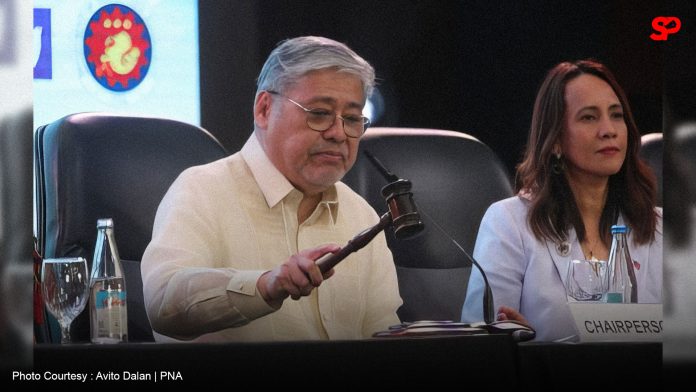MANILA – The Philippines capped the first International Conference on Women, Peace, and Security (ICWPS), reaffirming its commitment to continue leading in implementing the WPS agenda.
“We close the conference with a renewed purpose partaking meaningful, practical, and intentional strides going forward to national, regional, and global actions,” said Foreign Affairs Secretary Enrique Manalo in the ICWPS closing ceremony at the Philippine International Convention Center in Pasay City on Wednesday.
Manalo said the conference has been a success not only with the adoption of the Pasay Declaration but also because it gathered a diverse set of attendees from government, regional and international organizations, civil society organizations, and academe from 80 countries in six regions.
“This is a testament and promise of the spirit of collaboration that shall now light us forward,” he added.
In a meeting with United Nations Deputy Secretary-General Amina Mohammed on the sidelines of the event, Manalo assured that the Philippines would continue taking on the role as a WPS “pathfinder and peacemaker with vision and solutions”.
Manalo assured her that the Philippines is “invested” in this kind of conversation and its experiences are rooted in a good governance agenda.
In an interview, Foreign Affairs Assistant Secretary Maria Teresa Almojuela said the government also touted the country’s “advanced” mainstreaming of the WPS agenda, with the Bangsamoro region as an example.
“For this, the Philippines provides the perfect example of how this works on the ground, and how the WPS agenda is very relevant in how it transforms communities,” she told the Philippine News Agency.
“We really are a pathfinder because we’re one of those with grassroots solutions that work— this is how it happens on the ground. We have good examples, and that’s the meaning of pathfinder,” she added.
In one of the ICWPS roundtable discussions, Presidential Peace Adviser Secretary Carlito Galvez Jr. shared that the country adopted a “strong gender perspective” in implementing the peace process.
He said the state itself acknowledges that women’s participation in peace processes increase the possibility of a peace agreement lasting for years, citing the success of the creation of the Bangsamoro Autonomous Region in Muslim Mindanao (BARMM) and the BARMM government.
“The beauty and strength of the Bangsamoro Organic Law is that it includes several provisions that promote the empowerment of Bangsamoro women, their meaningful participation in the Bangsamoro government, and the protection of their fundamental rights and welfare,” he said.
Galvez, meanwhile believes that the Philippines can successfully lead and sustain conversations on WPS, especially with the future establishment of the “Philippine Center of Excellence on WPS”.
“Sa global context, dalawa palang ang 5th generation and sa bansa na may 4th generation ng National Action Plan on WPS nasa top 10 tayo (In the global context, there are only two with 5th generation National Action Plan on WPS, and we are among those with 4th generation already, we’re in the top 10),” he said.
“Ang edge natin is ‘yong culture natin ay matriarchal, very strong ang personality ng women sa atin to lead and also to excel— sa Philippine Military Academy alone 7 out of 10 (are women), they are also holding position in the government and private sector (Our edge is that our culture is matriarchal, the personality of our women to lead and to excel is very strong— at the Philippine Military Academy alone 7 out of 10 (are women), women are also holding positions in the government and private sector),” he added.
The Philippine-hosted ICWPS is led by the Department of Foreign Affairs, the Office of the Presidential Adviser on Peace, Reconciliation, and Unity, the Philippine Commission on Women and the Department of Budget and Management, in partnership with UN Women, the Philippine Center for Islam and Democracy, and the ASEAN Institute for Peace and Reconciliation, and the support of Senator Loren Legarda.
The three-day event is a landmark gathering leading up to the 25th anniversary of UN Security Council Resolution 1325 on Women, Peace, and Security on October 31. (PNA)

